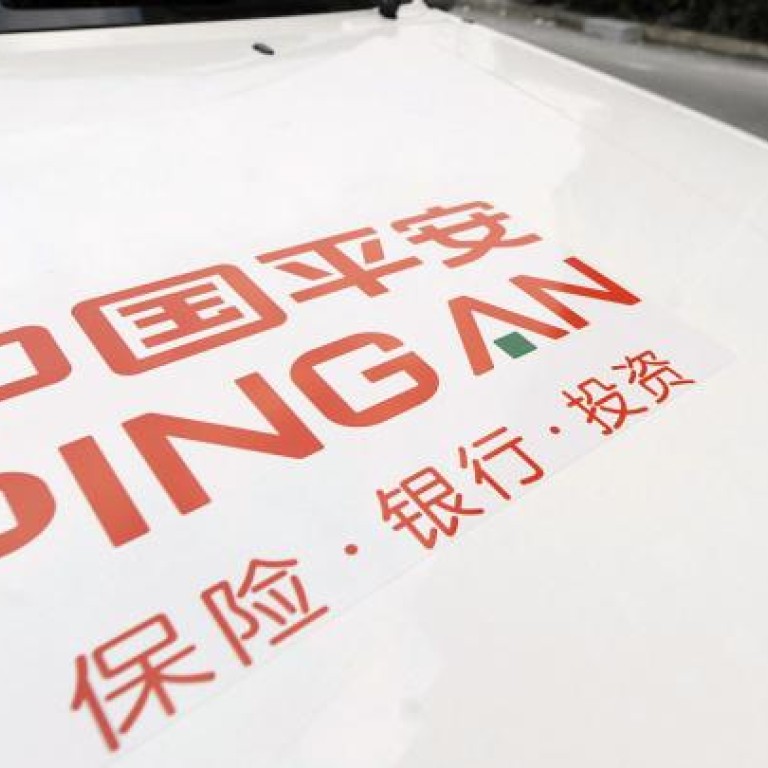
HSBC needs to end its Ping An silence with simple answers
Amid a power struggle over its Ping An stake sale, HSBC has not dealt with the controversy
HSBC management must be living in another world. The sale of its controlling stake in Ping An Insurance has been at the centre of a power struggle among rival camps in Beijing both in the private sector and in the media for the past month.
Two of the three financial journalists I have talked to confirmed the presence of "informers" that provided them with information at different stages of the sale process.
HSBC announced the HK$72 billion sale to Charoen Pokphand Group in Thailand on December 5. Two weeks after the announcement, a Hong Kong-based journalist received a call from a Putonghua-speaking man, saying ignore the spin; he knew who the real buyer was.
The journalist happened to have written up the share sale news and never previously followed Ping An or HSBC.
The informant claimed Xiao Jianhua, a man reputed to act for the family of former state leader Zeng Qinghong, was behind the buyout. The deep throat contact refused to meet the journalist or to identify himself.
Another veteran journalist received a similar tip-off from several mainland investment bankers. "The message was more or less the same. CP was not alone [in the purchase of Ping An]. There is someone else," said the journalist.
Unable to corroborate the tip-offs, neither journalist wrote about Xiao. Yet in less than a week, mainland media reported Xiao's alleged participation, claiming three local banks to which he was affiliated had advanced loans amounting to HK$11 billion to the CP Group, to make the first Ping An payment.
The reports also asked if the buyout was arranged to ensure control remains in the hands of existing Ping An management when the insurer's largest shareholder - HSBC - exits. Subsequent reports suggested China Development Bank had pulled its financing of the HK$61 billion second payment for CP Group, and that the mainland insurance regulator was about to reject the share sale.
As the market tried to make some sense out of all of this, anonymous Putonghua speakers phoned journalists again to offer explanations, and a few began to report that the whole fiasco was a plot against outgoing Premier Wen Jiabao. reported in November that Wen's relatives profited from Ping An's initial public offering, which he denied.
So all told, a significant amount of alleged insider information on the deal has been circulating among a large number of people ever since mid-December. And yet HSBC kept to a "no comment" line until its announcement late on Thursday evening.
That announcement came a day after some journalists filed questions to the regulators on HSBC's silence and the newly introduced statutory requirement to disclose price-sensitive information.
As with every deal that links to China, the bank can of course find cover in the opaqueness of the Chinese system and politics. A convenient excuse is that it will not be responsible for it to comment, or that comments may even be damaging to the deal if they are made before getting verification from relevant Chinese entities.
Verification means days or weeks of waiting in China. We all know how evasive mainland authorities can be in a power struggle. The delay in response is understandable, right?
The answer is no. This is because as far as the Ping An sale is concerned, only two facts need to be clarified - the money and the approval.
First, has CDB pulled the loan as reported? HSBC had said in its sale announcement that the payment obligation of the second tranche was "supported principally by a guarantee from CDB and a cash deposit into each Purchaser's account". If this material fact has changed, the announcement will no longer be true.
Second, does mainland law bar investors from buying insurance companies with bank finance, as reported by mainland media? If yes, it will be wrong to hope for any approval of CP Group's loan-backed purchase.
These factual queries have nothing to do with the evasiveness of mainland regulators, the genuine identity of the purchaser and the plot behind it, or the high politics in Beijing. The answers are plainly either yes or no.
What has taken HSBC so long to come up with an announcement that says "on the basis of an inquiry, the information contained in the 5 December 2012 announcement remains accurate"?
Is it because its management has been busy sorting out the fiasco to get the much-needed cash and attached little priority to its obligation to keep the market and its shareholders informed?
Has it too little access and clout to find a quick answer to the two factual questions despite all these years of cultivating connections and business in China? Or has it been gagged by mainland counterparts?
I am not sure which explanation is worst.
Shirley Yam is an HSBC shareholder

